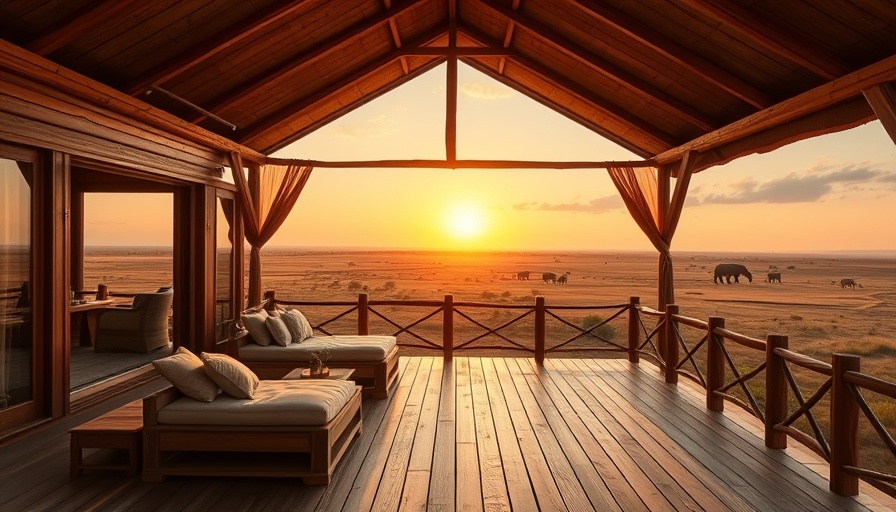
Luxury Tourism in Africa: A Balancing Act
Have you ever dreamed of going on a lavish safari, surrounded by majestic wildlife while your family enjoys gourmet meals under a starlit sky? Well, it’s time to explore how some African countries are redefining luxury tourism—without leaving local communities behind. Countries like Zimbabwe, Rwanda, Tanzania, and Botswana are not only luring high-end travelers but are also weaving sustainable practices into their tourism frameworks, promising that the benefits of this luxury reach the very heart of local populations.
Transforming Travel: The African Renaissance in Luxury Tourism
As the global appetite for luxury travel grows, Africa is stepping into the spotlight. The region is positioning itself as a leader for affluent travelers, which traditionally would have looked towards Europe or Asia. But today, with exclusive experiences ranging from sumptuous food tours to unique boutique hotels, Africa is catering perfectly to those who seek quality over quantity. Did you know that, according to the World Travel and Tourism Council, luxury tourism in Africa could generate over 18 million jobs in just a decade? This potential economic boom offers hope, but it should be accompanied by responsible practices.
The Many Faces of Investment in Luxury
Investment in Africa's luxury sector is booming, evidenced by the staggering 577 hotel and resort projects in the pipeline as of early 2025, with a vast majority being high-end establishments. This is not just economic growth; it presents a fantastic opportunity for families to reconnect with nature and experience cultures in meaningful ways. Engaging in the region’s unique heritage offers enriching experiences for families, transforming each trip into a treasure trove of memories.
Local Economic Growth: The Sweet and Sour of Wealth Distribution
However, these promising developments come with their own set of challenges. Critics point out that luxury tourism can sometimes exacerbate social inequalities. While high-end resorts create jobs, many positions are entry-level and often do not lead to growth into management roles for local residents. In regions like Zanzibar, tourists mostly interact with the resorts where they stay, limiting their patronage of local businesses. Financially, this can shutter local shops and eateries that could benefit immensely from traveler patronage.
Is Slow Tourism the Future?
The definition of luxury tourism is evolving. As travelers become more conscious of their environmental impact, there is a noticeable shift towards 'slow tourism'—where quality experiences are prioritized over quantity. This means travelers take the time to immerse themselves in the places they visit, supporting local economies with informed and responsible spending. This aspect of travel is particularly beneficial for families, as it teaches children the importance of cultural engagement and community support.
Incorporating Family Activities in Luxury Travel
So, how can families contribute to this balanced approach while on their luxurious escapes? Focusing on adventures that promote cultural interaction—such as enrolling kids in local cooking classes or visiting community craft markets—can be both enlightening and fun. Think cooking a local dish together as a family or participating in a wildlife conservation program. These experiences are more than just activities; they provide valuable lessons about sustainability and ethical consumption for children.
Final Thoughts: Finding Balance in Your Next Travel Destination
As you ponder your next family vacation, consider how to pick a travel destination that not only fulfills your wish-list of luxury but also aligns with sustainable practices. When you step into a room adorned with local art, you’re not just experiencing luxury; you're making an investment in cultural preservation. By choosing destinations in Zimbabwe, Rwanda, Tanzania, and Botswana, families can enjoy exclusive travel while empowering local communities.
With the upcoming wave of luxury tourism in Africa promising wonderful memories and meaningful experiences, now is the time to plan that dream getaway. Adventure awaits!
 Add Row
Add Row  Add
Add 




Write A Comment